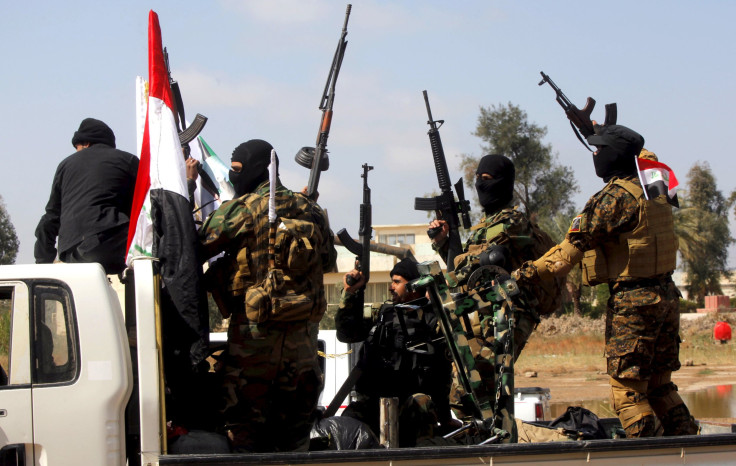ISIS Tikrit Battle: Shiite Militia Leader Criticizes Iraq Army 'Weaklings' Calling For US Support

The commander of the powerful Badr Shiite militia has criticized “weaklings” in the Iraqi military who have called for U.S. airstrikes to support an ongoing campaign against the ISIS stronghold of Tikrit. The remarks by Hadi al-Ameri Sunday signal possible rifts between Iraq’s army and the Iranian-backed Shiite militias currently supporting the Tikrit offensive.
"Some of the weaklings in the army ... say we need the Americans while we say we do not need the Americans," Ameri told journalists when asked about U.S. air support, Agence France-Presse reported. The top Iraqi commander in the Salaheddin province where Tikrit is located had told the news agency earlier he airtrikes are needed to fight the militant group.
The battle to recapture Tikrit from ISIS, which began earlier this month, slowed in the past week as militias struggled to uproot militants from the city center where a few hundred insurgents have been holed up surrounded by snipers and landmines, the Wall Street Journal reported. Iraq’s government has had to rely on Iranian-backed Shiite militias to bolster its flagging forces ahead of the crucial battle.
The top commander of Iran’s powerful Revolutionary Guard’s Quds Force has played a crucial role in coordinating operations in Tikrit and al-Ameri cited the military leader’s engagement in the campaign as another reason American support was not needed. "Qassem Suleimani is here whenever we need him," he said. "He was giving very good advice.” Tehran also deployed advanced rockets and missiles to the country last week to bolster its efforts in Tikrit.
Iran’s involvement in backing the offensive has raised concerns Tehran may be using the anti-ISIS campaign to reinforce its own influence in Iraq. U.S. officials, including former CIA Director David Petraeus have voiced concerns about the long-term threat posed by Iranian-backed Shiite militias, which they argue could emerge as the dominant power in Iraq.
© Copyright IBTimes 2024. All rights reserved.












